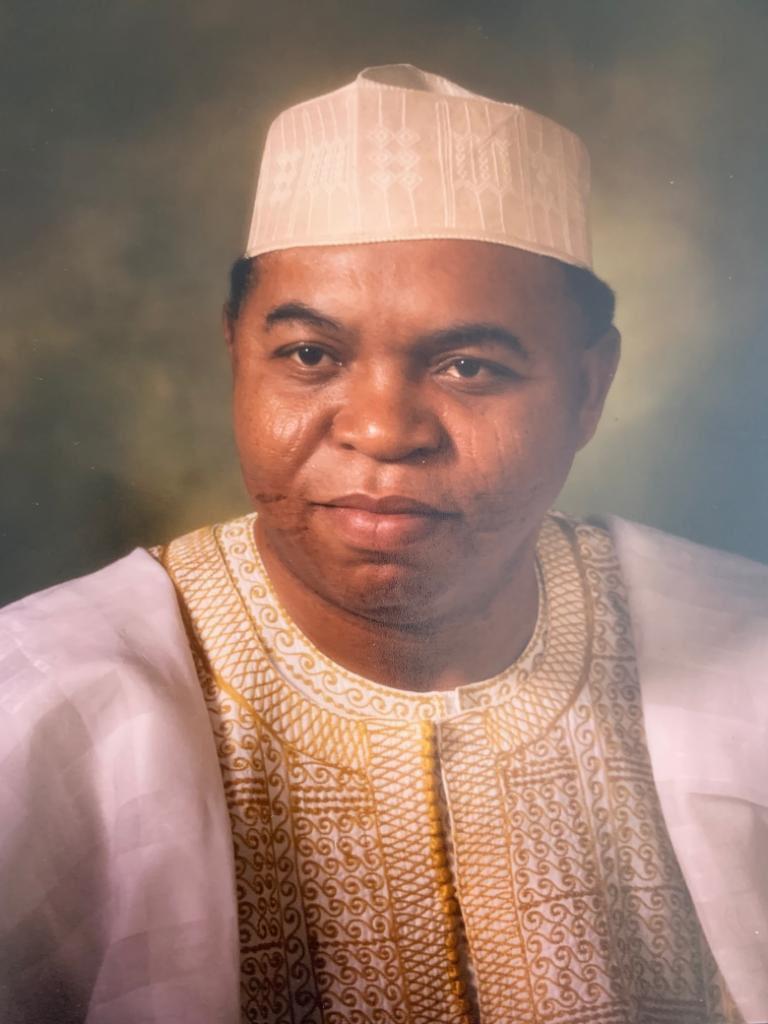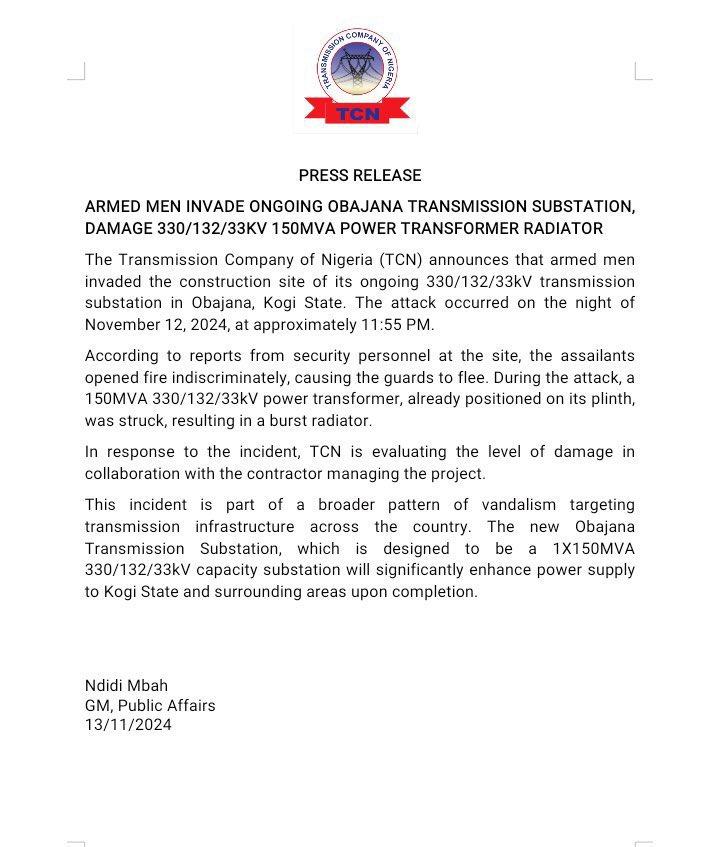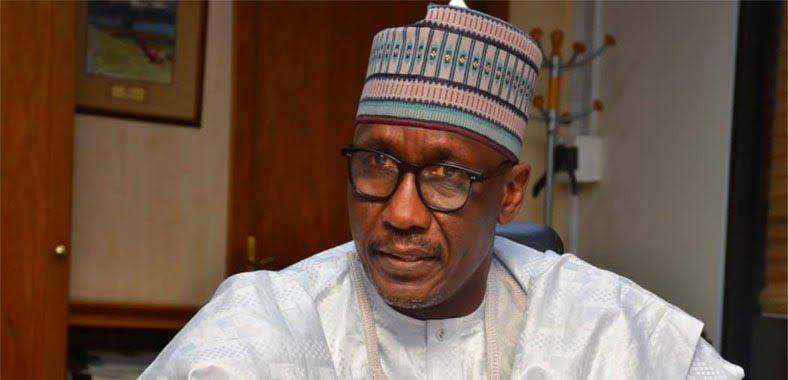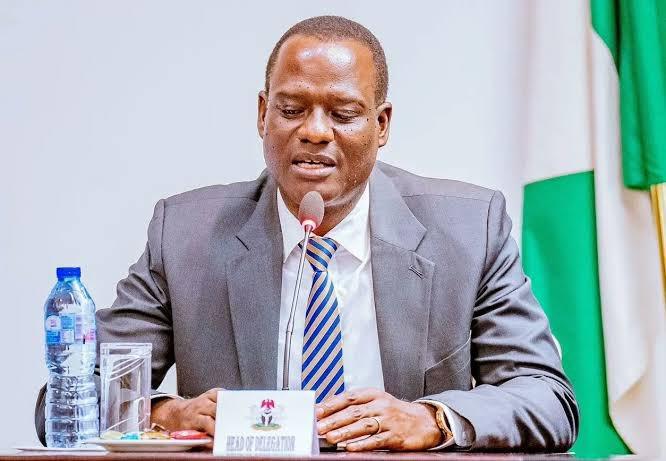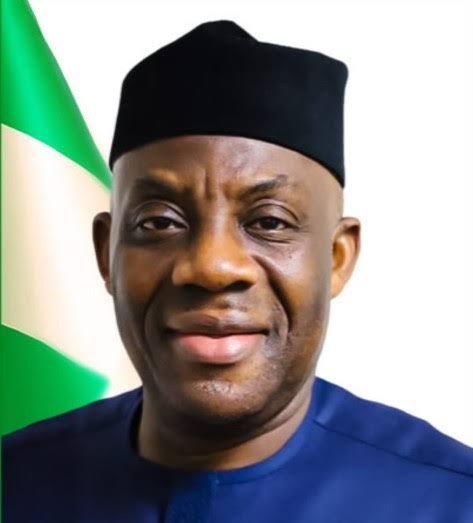OMOH! IT IS 9 YEARS AGO ALREADY🥹
November 22, 2015, feels just like yesterday. I was just a young junior secondary school student in Akwanga, full of curiosity and a budding interest in politics, both at the national level and Kogi State
The 2015 Kogi State gubernatorial election was a showdown between Captain Idris Wada and Prince Abubakar Audu ... I still vividly remember catching a glimpse of Prince Audu in 2015 during the APC/AlMakura Gubernatorial Mega Rally in Central Pilot school Akwanga. Even though I couldn’t get close to him because of the heavy security around the VIP canopy, I was confident it was him It was a surreal moment for me, a young boy far from home but already captivated by the politics of Kogi
Back then, APC was still a relatively new party, but I had already fallen in love with its ideology. As the November 2015 Kogi election drew closer, the political tension in the air was palpable. Social media was buzzing with complaints about the incumbent, Governor Idris Wada, and there was so much hope that Audu would bring the change the people desperately needed
I closely followed the APC primaries on August 30, 2015. When the results came in, Audu secured 1,009 votes while Yahaya Bello, a surprising new contender, scored 703.... The numbers were impressive, but Audu’s victory felt inevitable... I believed he was the right man for the job, and from my little corner in Akwanga, I prayed for his success
Fast forward to election day, November 21, 2015. I watched it live on Channels TV as Prince Audu stepped out to cast his vote, dressed elegantly in his signature attire. Excitement filled the air – APC was on the verge of making history in Kogi State But, oh, the struggle of following updates! NEPA’s light was as unreliable as ever, and I had to rely on my trusty Nokia Express Music to stay connected , flipping between Facebook and 2go for live updates... Here, I don't know Twitter yet
Then came November 22, 2015, the day that began with so much hope but ended in heartbreak. As collation results trickled in, APC was leading, and victory seemed assured . But suddenly, the unthinkable happened. News broke that Prince Abubakar Audu had passed away🥹 "Oh are you sure? This must be fake news,” I thought. Just yesterday, we watched him vote on TV. It couldn’t be true! But as the hours passed, the devastating confirmation came... The man who was on the verge of making history was no more
That Sunday turned black for Kogi State and Nigeria as a whole. The dream was shattered, and the loss was immeasurable
Today, nine years later, we still remember Adoja Prince Abubakar Audu for his service, his leadership, and the hope he gave to Kogi people.
May his soul continue to rest in perfect peace. Ameen
November 22, 2015, feels just like yesterday. I was just a young junior secondary school student in Akwanga, full of curiosity and a budding interest in politics, both at the national level and Kogi State
The 2015 Kogi State gubernatorial election was a showdown between Captain Idris Wada and Prince Abubakar Audu ... I still vividly remember catching a glimpse of Prince Audu in 2015 during the APC/AlMakura Gubernatorial Mega Rally in Central Pilot school Akwanga. Even though I couldn’t get close to him because of the heavy security around the VIP canopy, I was confident it was him It was a surreal moment for me, a young boy far from home but already captivated by the politics of Kogi
Back then, APC was still a relatively new party, but I had already fallen in love with its ideology. As the November 2015 Kogi election drew closer, the political tension in the air was palpable. Social media was buzzing with complaints about the incumbent, Governor Idris Wada, and there was so much hope that Audu would bring the change the people desperately needed
I closely followed the APC primaries on August 30, 2015. When the results came in, Audu secured 1,009 votes while Yahaya Bello, a surprising new contender, scored 703.... The numbers were impressive, but Audu’s victory felt inevitable... I believed he was the right man for the job, and from my little corner in Akwanga, I prayed for his success
Fast forward to election day, November 21, 2015. I watched it live on Channels TV as Prince Audu stepped out to cast his vote, dressed elegantly in his signature attire. Excitement filled the air – APC was on the verge of making history in Kogi State But, oh, the struggle of following updates! NEPA’s light was as unreliable as ever, and I had to rely on my trusty Nokia Express Music to stay connected , flipping between Facebook and 2go for live updates... Here, I don't know Twitter yet
Then came November 22, 2015, the day that began with so much hope but ended in heartbreak. As collation results trickled in, APC was leading, and victory seemed assured . But suddenly, the unthinkable happened. News broke that Prince Abubakar Audu had passed away🥹 "Oh are you sure? This must be fake news,” I thought. Just yesterday, we watched him vote on TV. It couldn’t be true! But as the hours passed, the devastating confirmation came... The man who was on the verge of making history was no more
That Sunday turned black for Kogi State and Nigeria as a whole. The dream was shattered, and the loss was immeasurable
Today, nine years later, we still remember Adoja Prince Abubakar Audu for his service, his leadership, and the hope he gave to Kogi people.
May his soul continue to rest in perfect peace. Ameen
OMOH! IT IS 9 YEARS AGO ALREADY🥹
November 22, 2015, feels just like yesterday😀. I was just a young junior secondary school student in Akwanga, full of curiosity and a budding interest in politics, both at the national level and Kogi State😁
The 2015 Kogi State gubernatorial election was a showdown between Captain Idris Wada and Prince Abubakar Audu ✌️... I still vividly remember catching a glimpse of Prince Audu in 2015 during the APC/AlMakura Gubernatorial Mega Rally in Central Pilot school Akwanga. Even though I couldn’t get close to him because of the heavy security around the VIP canopy, I was confident it was him😊 It was a surreal moment for me, a young boy far from home but already captivated by the politics of Kogi😎
Back then, APC was still a relatively new party, but I had already fallen in love with its ideology. As the November 2015 Kogi election drew closer, the political tension in the air was palpable. Social media was buzzing with complaints about the incumbent, Governor Idris Wada, and there was so much hope that Audu would bring the change the people desperately needed🥶
I closely followed the APC primaries on August 30, 2015. When the results came in, Audu secured 1,009 votes while Yahaya Bello, a surprising new contender, scored 703🤓.... The numbers were impressive, but Audu’s victory felt inevitable✌️... I believed he was the right man for the job, and from my little corner in Akwanga, I prayed for his success🙏
Fast forward to election day, November 21, 2015. I watched it live on Channels TV as Prince Audu stepped out to cast his vote, dressed elegantly in his signature attire. Excitement filled the air – APC was on the verge of making history in Kogi State😎 But, oh, the struggle of following updates! NEPA’s light was as unreliable as ever, and I had to rely on my trusty Nokia Express Music to stay connected 😂, flipping between Facebook and 2go for live updates... Here, I don't know Twitter yet 🤓
Then came November 22, 2015, the day that began with so much hope but ended in heartbreak. As collation results trickled in, APC was leading, and victory seemed assured 😊. But suddenly, the unthinkable happened. News broke that Prince Abubakar Audu had passed away🥹 "Oh are you sure? This must be fake news,” I thought. Just yesterday, we watched him vote on TV. It couldn’t be true! But as the hours passed, the devastating confirmation came... The man who was on the verge of making history was no more🥲
That Sunday turned black for Kogi State and Nigeria as a whole. The dream was shattered, and the loss was immeasurable😭
Today, nine years later, we still remember Adoja Prince Abubakar Audu for his service, his leadership, and the hope he gave to Kogi people.
May his soul continue to rest in perfect peace. Ameen 🤲
0 Comments
0 Shares
165 Views
0 Reviews




